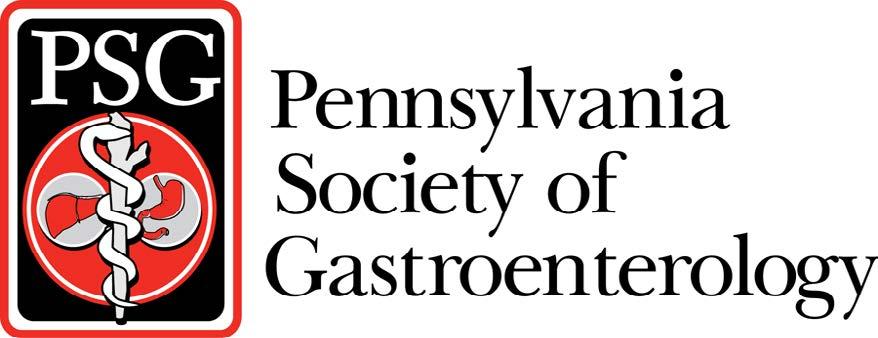
6 minute read
Finance Update
David B. Mandell, JD, MBA
Shielding Your Wealth from Liability: Asset Protection Tools Are Not Equal
Advertisement
@OJMGroup
s an attorney and consultant to A more than 1,500 physicians, I have advised many gastroenterologists regarding tools and strategies to shield assets from unforeseen future liability. In this article, I hope to dispel some incorrect assumptions and provide one of the most important fundamentals of asset protection: protective tactics and tools are not equal. In fact, each can offer varying levels or degrees of protection.
Asset Protection: A Matter of Degree
The most common misconception that physicians have regarding asset protection is to think that an asset is either “protected” or “not protected.” An asset protection professional approaches a physician with unprotected assets much in the way that a doctor treats a patient. Like physicians, asset protection professionals will first try to get a client to avoid bad habits. For a medical patient, bad habits might mean smoking, drinking too much or a poor diet. From an asset protection standpoint, bad habits might include owning property in a physician’s own name, owning it jointly with a spouse, or operating any medical practice with business assets exposed.
Beyond bad habits, we try to structure a physician’s assets so they have the best protection that is reasonably possible under the circumstances, which can range from how much the doctor wants to spend and how much the asset is worth to the client’s marital status, state of residence and interest in estate planning. Guiding this process is the knowledge that each asset protection tool, like any medicine, has certain efficacy and costs/benefits.
For the past 20 years, I have used an asset protection rating system ranging from –5 (totally vulnerable) to +5 (highest level of protection). The goal of asset protect planning is not to move all assets to a +5 position—this simply is not possible, even in the states that have the most protective laws. On the other hand, too many physicians, including gastroenterologists, have too many of their personal or practice assets in negative positions with little or no shield. At a minimum, nearly all physicians would do well to move the bulk of their personal and practice assets to positive positions.
Highest Level of Protection: Exempt Assets
State and federally exempt assets are the best +5 protection tools that can be leveraged by physicians. In addition to enjoying the highest +5 level of protection, they involve no legal fees, state fees, accounting fees or gifting programs. In other words, you can own the exempt asset outright in your name, have access to any values and still have it 100% protected from a typical lawsuit against you. Each state law has assets that are exempt from creditor claims, thereby achieving a +5 status. Many states provide exemptions for qualified retirement plans and IRAs, cash within life insurance policies, annuities, and primary homes. Consult an asset protection expert to learn the exemptions in your state; and, if protection is important to you, be sure to maximize these +5 tools.
Joint Ownership Forms: Top Protection for Some Assets Against Some Creditors in Some States
In about 20 states, tenancy by the entirety (“TBE”) is a form of joint ownership available to married couples that may provide the top level of protection for claims against only one spouse. In some states, this protection applies only to real estate owned by TBE; in other states, both real property and personal property, like investment accounts, can be shielded through TBE.
However, inherent in TBE are several risks, including the fact that TBE never provides any protection against joint risks (such as lawsuits that arise from jointly owned real estate) and all protections are lost in the event of a divorce. For this reason, even in states where TBE can be protective, we often recommend that it be combined with legal tools such as those described below.
Bridging the Gap: Legal Tools
Legal tools, such as limited liability companies (LLCs), family limited partnerships (FLPs), and a variety of trusts, are often used to bridge the gap between negative protection positions and +5 exempt assets (or TBE in limited circumstances, per above).
FLPs and LLCs can provide good asset protection against future lawsuits, allow for maintenance of control by the client, and can provide income and estate tax benefits in certain situations. Specifically, these tools will generally keep a creditor outside the structure through charging order protections, which typically allow a physician to create enough of a hurdle against creditors to negotiate favorable settlements. For these reasons, we often call FLPs and LLCs the building blocks of a basic asset protection plan.
There are also many types of trusts that provide significant protection for clients. These can range from life insurance trusts or charitable remainder trusts to grantor retained annuity trusts and more. In recent years, many states have passed statutes allowing domestic asset protection trusts (DAPTs) which can be an ideal trust protection tool for many physicians. Each trust type has its pros and cons, costs, and benefits.
Obviously, for all these legal tools, asset protection benefits are reliant upon accurate drafting of documents, proper maintenance, respect for formalities and suitable ownership arrangements. If all these are in place, the physician can enjoy solid asset protection for a relatively low cost.
Conclusion
Asset protection planning, like any sophisticated multidisciplinary effort, is one with relative pros and cons for each tactic or strategy. A physician should be guided by an advisor who utilizes all available tools to provide the highest levels of protection with reasonable costs.
SPECIAL OFFERS: The author has recently completed Wealth Planning for the Modern Physician. To receive free print copies or e-book downloads of this book or Wealth Management Made Simple, text PSGNEWS to 844-418-1212, or visit www. ojmbookstore.com and enter promotional code PSGNEWS at checkout.
David Mandell, JD, MBA, is an attorney and author of more than a dozen books for doctors, including Wealth Planning for the Modern Physician. He is a partner in the wealth management firm OJM Group (www.ojmgroup.com) and can be reached at 877-656-4362 or mandell@ojmgroup.com.
Disclosure:
OJM Group, LLC. (“OJM”) is an SEC registered investment adviser with its principal place of business in the State of Ohio. SEC registration does not constitute an endorsement of OJM by the SEC nor does it indicate that OJM has attained a particular level of skill or ability. OJM and its representatives are in compliance with the current notice filing and registration requirements imposed upon registered investment advisers by those states in which OJM maintains clients. OJM may only transact business in those states in which it is registered or qualifies for an exemption or exclusion from registration requirements. For information pertaining to the registration status of OJM, please contact OJM or refer to the Investment Adviser Public Disclosure web site www.adviserinfo.sec.gov.
For additional information about OJM, including fees and services, send for our disclosure brochure as set forth on Form ADV using the contact information herein. Please read the disclosure statement carefully before you invest or send money.
This article contains general information that is not suitable for everyone. Information obtained from third party sources are believed to be reliable but not guaranteed. OJM makes no representation regarding the accuracy or completeness of information provided herein. All opinions and views constitute our judgments as of the date of writing and are subject to change at any time without notice. The information contained herein should not be construed as personalized legal or tax advice. There is no guarantee that the views and opinions expressed in this article will be appropriate for your particular circumstances. Tax law changes frequently, accordingly information presented herein is subject to change without notice. You should seek professional tax and legal advice before implementing any strategy discussed herein.
2021 PSG ANNUAL SCIENTIFIC MEETING
SEPTEMBER 11 VIRTUAL








